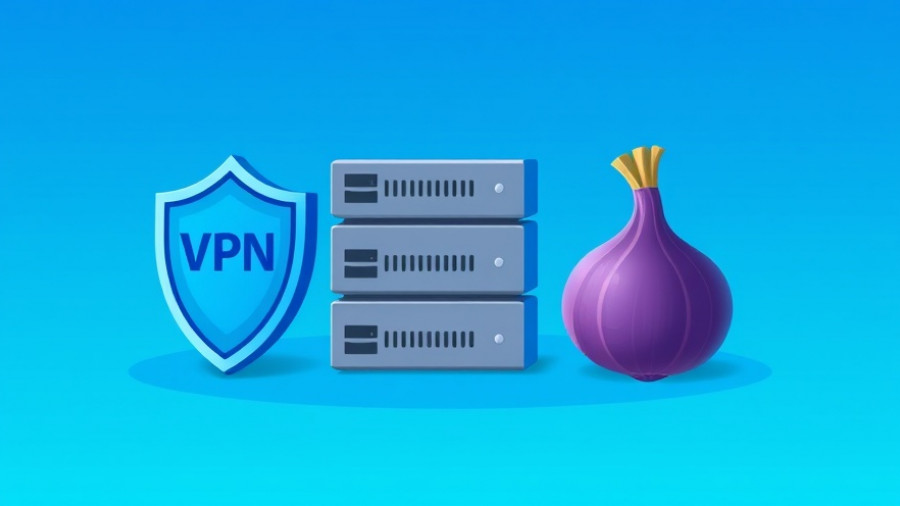
Understanding the Privacy Protection Landscape: Proxy, VPN, and Tor
The internet has become a double-edged sword; while it offers connectivity, it also poses a significant privacy risk. With various tools like proxies, VPNs, and Tor available, business owners and managers must discern which solution is most suitable for their needs. Each tool carries its unique strengths and weaknesses, particularly concerning anonymity and data security.
Decoding Proxies: Basic IP Masking with Limitations
A proxy server acts as an intermediary, routing your web traffic and obscuring your real IP address. This function is beneficial for accessing geo-restricted content, allowing you to surf the web as if you were from a different location. However, it’s crucial to note that proxies do not encrypt data, meaning sensitive information could be intercepted.
So when should you opt for a proxy? They serve well for users seeking basic anonymity without needing robust security, perfect for those occasional log-ins to access blocked content.
VPNs: The Gold Standard in Online Privacy
Virtual Private Networks (VPNs) elevate online security by encrypting all internet traffic between your device and the server, making it challenging for anyone to intercept your data. This encryption safeguards against various threats, especially on unsecured networks like public Wi-Fi. For business owners managing sensitive data, VPNs provide peace of mind by not only hiding their IP address but also ensuring data integrity during transmission.
VPNs are ideal when you require consistent security across multiple applications, making them essential for encrypted browsing and reliable access to geo-restricted platforms like Netflix and coding tutorials.
Raising the Bar: Exploring Tor for Maximum Anonymity
For those in need of the utmost privacy, Tor (The Onion Router) routes your internet connection through a network of volunteer-operated servers, layering encryption at each step. This approach ensures that your browsing activities are nearly impossible to trace. However, the flip side is that Tor can significantly slow down your connection, making it less suitable for everyday browsing but a valuable tool for activists or journalists working in restrictive environments.
If top-tier anonymity is your priority—especially if you’re accessing sensitive information or sources—Tor, when used properly, can provide an effective solution.
Choosing the Right Tool for Your Needs
Determining the best tool depends on your distinct requirements. If you want basic IP protection occasionally, a proxy might suffice. Should your activities warrant stronger security, a VPN will be your best option. For users engaged in high-risk scenarios, Tor serves as a powerful ally.
As a business owner, understanding these tools equips you with the ability to make informed decisions regarding your internet usage. Ultimately, securing your online identity means more than just a simple decision; it entails a commitment to safeguarding your sensitive information.
Take the Next Step Towards Securing Your Online Presence
If you want to safeguard your business operations while browsing the internet, consider adopting a VPN solution that best meets your needs. The right choice can empower you to work efficiently and securely in today’s digital landscape.
 Add Row
Add Row  Add
Add 










Write A Comment